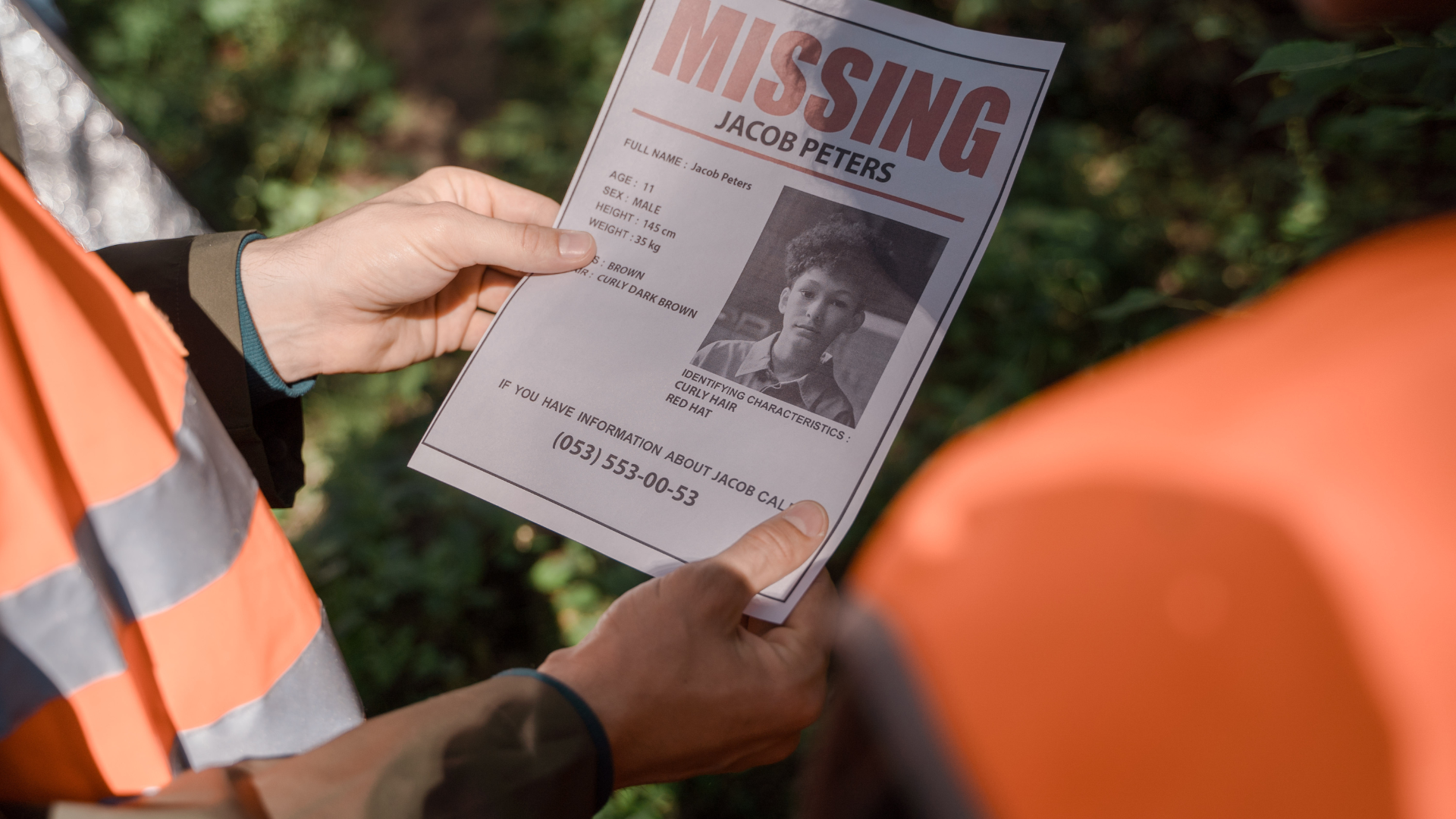By: Uncovered Staff

The National Missing and Unidentified Persons System (NamUS) in the United States reports that more than 600,000 people go missing each year. Many missing persons are located within a short time, but tens of thousands remain missing for more than a year (qualifying them as cold cases in many instances).
How is Someone Defined as a “Missing Person”?
According to Wikipedia, a missing person is someone who has disappeared and not yet been relocated, without contact to anyone, making it difficult to know their whereabouts, condition, or status as alive or deceased.
People go missing for many reasons. Sometimes they choose to disappear to escape a dangerous situation, evade capture, or start a new life. Othertimes, an accident causes a person’s disappearance. Lastly, it’s possbile that sometimes, foul play or criminal activity is involved in a person’s disappearance.
Regardless of why someone cannot be located, one of the first steps often taken to try to locate the individual is to get authorities involved. That starts with filing a missing persons report.
Filing a Missing Persons Report: Who You’ll Call
The U.S. Department of Justice provides extensive resources related to both reporting and identifying missing persons. Before determining the best course of action, it is important to note whether the missing person is a child or an adult.
For a missing child, the DoJ recommends reporting the disappearance immediately.
- Contact your local law enforcement agency to report the child missing.
- Then contact the National Center for Missing and Exploited Children (NCMEC) at 1-800-THE-LOST (1-800-843-5678).
- In cases of suspected child abduction, it may be possible to issue an AMBER Alert.
In general, always call 911 when there is immediate danger to someone’s life, safety, or health. For a missing person’s case, it’s recommend you call 911 when the person missing is a child, if they have a mental or phiscyal disability, or if the circumstances hint at a more serious crime.
For all other instances, it’s recommended that you contact your local precinct through their non-emergency phone number. This can be found online by searching for your town or local police department’s name and adding “phone number” at the end of your search.
What Should I Say?
When talking with law enforcement about a missing friend or loved one, you may need to provide information about why you believe the person’s disappearance is involuntary, and you may be asked to supply additional details about the missing person, such as:
- Full name, date of birth, and social security number;
- Information regarding their last known whereabouts or contact;
- Knowledge of any vehicles or other persons who may be involved in the disappearance;
- Knowledge of places this person liked to go or frequented in their routine — or places that were out of their routine but possibly related;
- Details about their physical appearance, identifying characteristics, and clothing they were last seen wearing — or personal items that were worn habitually like jewelry; and,
- Be ready to have a recent photograph of them available for police.
Note: Many law enforcement agencies have eliminated mandatory waiting periods for filing missing persons reports. If you suspect a missing person might be in danger (whether they are a child or an adult), report the disappearance as soon as possible. Be sure to carefully document all interactions with law enforcement so you can follow up with officers working the case, if needed, and get a copy of the report for your records.
It’s a good idea to continue with a cooperative dialogue with investigators throughout this process. Keep an open mind when sharing with them additional information you have become aware of, and feel free to ask them if there are ways where you can assist.
Lastly, it’s recommended you keep a record of all the law enforcement personnel you speak with regarding your missing loved one. If possible, record the name, phone number and/or badge number of the officer who took the report. This is for your records so you can follow-up with additional information and have a point of contact.
If you have any information regarding the disappearance of a missing person, contact your local law enforcement agency or submit a tip to Crime Stoppers USA at 1-800-222-TIPS.
